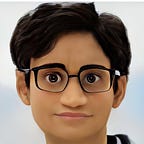Startup founder — Professional or Artist?
Adam Neumann, the much vilified co-founder and ex-CEO of WeWork, pushed the limits of acceptable behavior much before he was let go, and reams have already been written about them (and a movie is in the works, right on cue). Such high-profile founder failures are now a genre in itself (Elizabeth Holmes being Exhibit A), at the dizzy intersection of social media and schadenfreude.
Specific villains though are a bad antidote to systemic problems, and once the scapegoating is out of the way, it is back to business as usual. In the continuum of founder behavior, are WeWork and Theranos really an abberation? Or are they the natural culmination of a set of perverse incentives? Equally important, has the role of the founder itself changed, in the eyes of investors, the general public, and as a consequence founders themselves?
Seth Godin, in his book The Practice, differentiates between hacks and creators thus — hacks give customers what they want, creators lead customers to the edge of whats possible. In that sense, startup founders lie squarely in the realm of creators and artists. Traditionally society has given a large latitude to artists, accepting a variety of idiosyncracies and character flaws, in lieu of the gift of their creative genius. Embracing this ‘rock-star’ side of their personas is not difficult, especially when venture dollars and media coverage are goading you on. This is the classic founder-centric worldview, often true in the early phase of a startup when founders are the creative engine driving the product forward and shaping the vision of the company.
Now consider where this equivalence breaks down. Solo creators — artists, musicians and the like, are not organization builders. They don’t need to ensure the bills are paid, employees motivated, and work shipped. Day in and day out, and especially on the bad days (or bad years, circa 2020 and ongoing). Showing up, as they say, is 90% of what makes for a professional. As a startup matures, or more aptly, survives the tumultous years till they achieve product-market-fit, teams are still small enough that founders in addition to being the visionary-in-chief are also mired in operational, sleep-in-the-factory level muck.
That Elon Musk reference is not incidental, there are plenty of founders who are fighting operational fires all the time. Because his social media megaphone and Marvel superhero scale personality are so large, it overshadows Musk’s other superpower: his ability to lead the troops through the inevitable, often life-threatening, crises that startups must face frequently. And therein lies the rub with many modern founder in their rock-star avatars — what operational crisis, when existential problems can be shoved a few quarters or years down the line with wads of growth capital? The performance of vision in service of capital raising and media coverage, rather than a coherent vision in itself, becomes the raison d’etre. Barnum would be proud.
The founder as artist and performer is one of the greatest assets a startup can have, when it provides both inspiration and security to the rest of the organization as it goes about its mission, saying ‘this is our path, and I will take the first arrows shot our way’. When deployed primarily for external consumption to build a cult of personality, it is wasted and often self-defeating — self-indulgent graffiti. A better template to follow would be of the painter who draws the outline on a canvas, and guides others as they fill in the colors.
